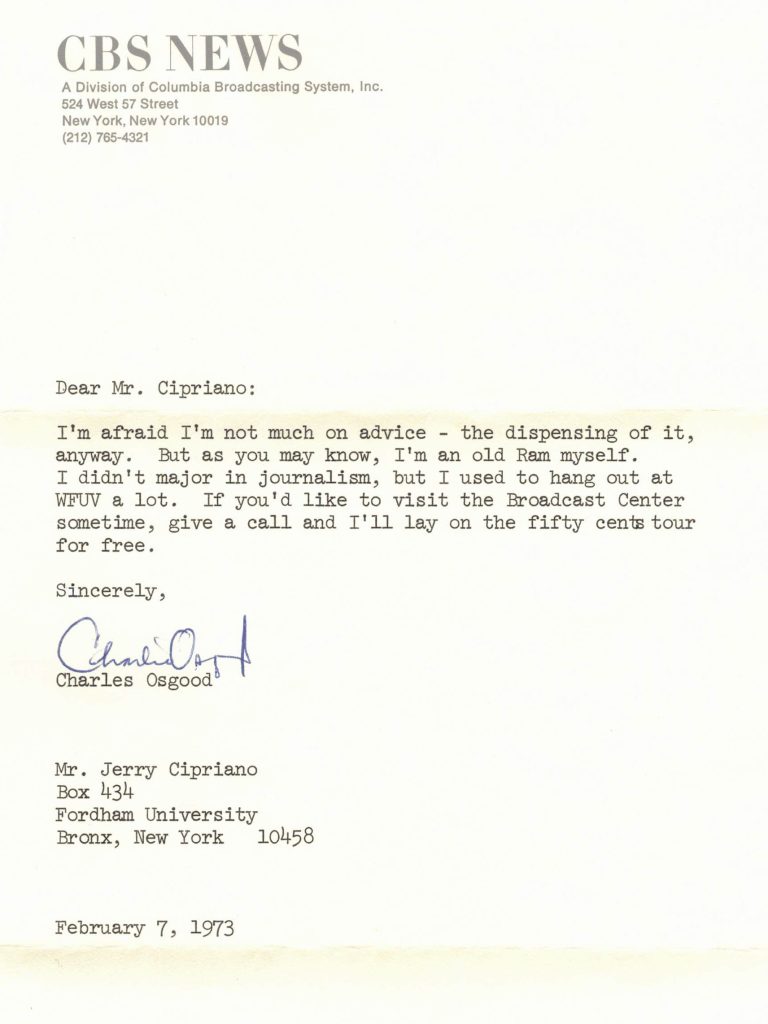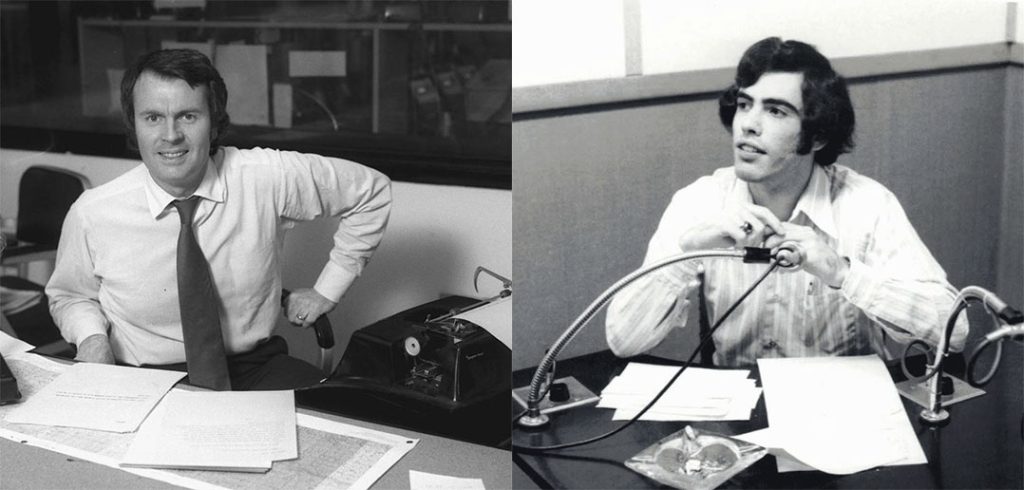I first met Charlie in 1973, when I was a sophomore at Fordham University. I had heard him many times on CBS Radio and admired his work. So I wrote him a letter and asked if he had any advice for an aspiring broadcast journalist.
To my delight, Charlie wrote back. “I’m afraid I’m not much on advice,” he said. “But as you may know, I’m an old Ram myself. If you’d like to visit the Broadcast Center sometime, give a call and I’ll lay on the fifty cents tour for free.”
 I called right away, before he could forget who I was, and one winter morning, I hopped on the D train in the Bronx and headed down to CBS News headquarters on West 57th Street in Manhattan.
I called right away, before he could forget who I was, and one winter morning, I hopped on the D train in the Bronx and headed down to CBS News headquarters on West 57th Street in Manhattan.
Charlie had one of the most distinctive voices in radio. And over the years, I had formed a mental picture of him to match it. I thought. When Charlie greeted me, the voice was familiar but the image was not. I could not believe that amazing voice was coming out of this stranger. As he showed me around, it took a while before the voice and the speaker synced up in my mind.
Charlie bought me breakfast at the CBS cafeteria. He told me he had spent a lot of time in his Fordham days at the student-run radio station, WFUV. I took that as a suggestion, and when I returned to campus, I headed to the station and went to work in the news department.
A decade later, after working as an AP broadcast writer and editor, I was offered a job at CBS News, at the radio network, where Charlie was the star. By then, he had long since forgotten me, but we soon reconnected when I was assigned to write radio newscasts for him.
Charlie always ended with a kicker. One he wrote that I’ll never forget was about a truck flipping over and spilling its cargo of cookies all over the roadway. Charlie ended by saying:
“That’s the way the (pause) ball bounces. Fooled you!”
Brilliant.
My job when I wrote for Charlie was to find a kicker worthy of him and write it well. It was a challenge I enjoyed.
One Sunday night, I wrote a kicker for his 8 p.m. radio newscast about a study that found watching too much TV could make you fat. The punchline: “Someone once called television a vast wasteland. Looks like too much of it could lead to a vast waistline.”
Charlie looked at the copy and said, “This is good enough to steal.” And steal it he did. He used the line again on his 11 p.m. television broadcast.
That broadcast was called the CBS Sunday Night News. It was 15 minutes long and, in 1986, I became Charlie’s writing partner on it. We split up the stories and challenged each other each week to come up with the best line. I never had so much fun in my life.
I will always be grateful to Charlie for the kindness he showed me as a young college student and for the privilege of working with him as a colleague. May he rest in peace.
—Jerry Cipriano, FCRH ’75, retired in 2018 as senior news editor of the CBS Evening News. He began his journalism career at the Associated Press while still attending Fordham. He joined CBS News in 1984 as a writer for network radio and moved over to television news in 1986.
A version of this essay originally appeared in Connecting, a newsletter for retirees and former employees of the Associated Press. It is republished here with the kind permission of the newsletter’s editor, Paul Stevens.
Watch this on-air tribute to Jerry Cipriano during the last of his many CBS Evening News broadcasts. Anchor Jeff Glor describes him as “a mentor, a friend, and master craftsman who has written the first draft of history for more than three decades.”


